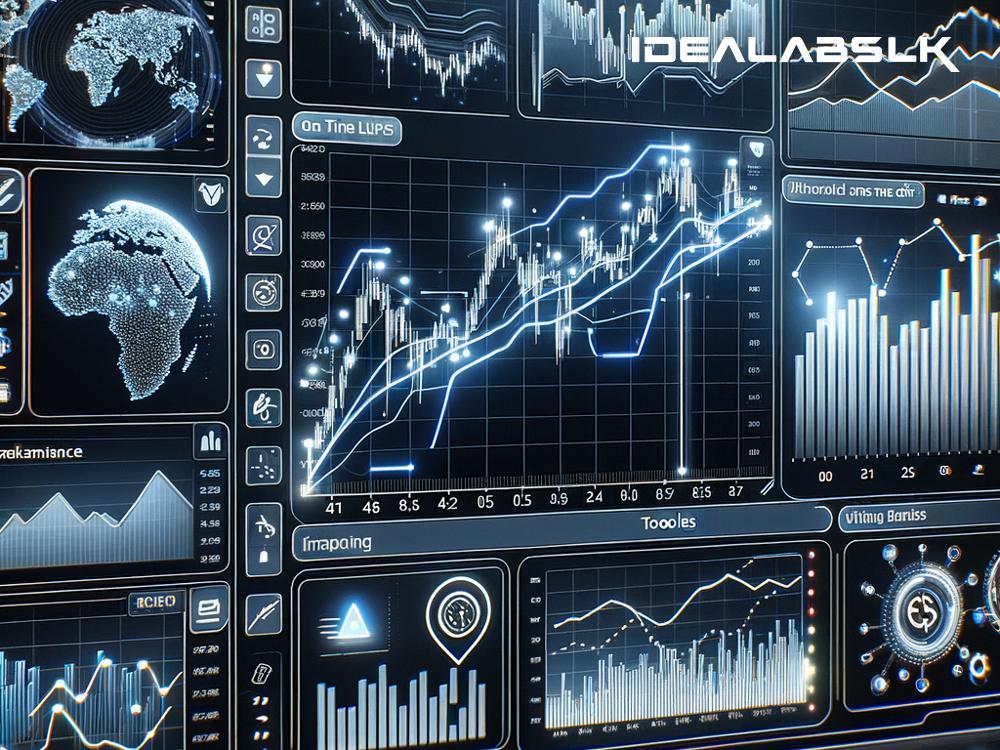AI in Trading: Revolutionizing Algorithmic Trading with AI-Powered Systems
In the fast-paced world of financial markets, the rise of AI-powered systems in algorithmic trading is turning heads and opening wallets. Algorithmic trading, or algo-trading, uses computer programs to trade at high speeds and volumes based on predetermined criteria. But with AI stepping into the scene, the game is changing. Here's how AI-powered systems are transforming algo-trading, making it smarter, faster, and more efficient.
Breaking Down the Basics
Before we dive deeper, let's clarify a couple of terms. First, "algorithmic trading" refers to using computer algorithms to execute trades. These algorithms follow specific sets of instructions, like buying 100 shares of a stock when its 50-day moving average goes above the 200-day moving average. Second, "AI" or Artificial Intelligence, is technology that enables computers to think and learn like humans, but at an incredibly faster and more accurate rate.
The AI Advantage in Trading
The incorporation of AI into trading systems brings several game-changing advantages. Here's a rundown of the key benefits:
Speed and Efficiency
AI can process and analyze vast amounts of data in the blink of an eye. It can monitor real-time market conditions, news, social media feeds, economic indicators, and more, much faster than any human or traditional trading system. This means AI-powered trading systems can make split-second decisions, taking advantage of market opportunities the moment they arise.
Predictive Analytics
One of the most exciting aspects of AI in trading is its ability to predict future market trends by analyzing historical data. Through machine learning, AI systems can learn from past market behavior and improve their forecasting accuracy over time. This predictive power helps traders to make more informed decisions, potentially leading to better trading outcomes.
Risk Management
Trading involves risk, but AI can help minimize it. By analyzing historical data and current market conditions, AI-powered systems can identify potential risks and adjust trading strategies accordingly. This proactive approach to risk management can protect traders from big losses and enhance overall trading performance.
Customization
AI systems can be tailored to meet specific trading goals and strategies. Whether you're a day trader looking for quick gains or a long-term investor focusing on steady growth, AI-powered trading systems can be customized to execute trades that align with your objectives. This level of personalization is a significant upgrade from the one-size-fits-all approach of traditional trading systems.
Real-World Applications
Now, let's look at how AI is being applied in the world of algo-trading:
High-Frequency Trading (HFT)
In HFT, traders execute a large number of orders at lightning speed to capture small price differences. AI enhances HFT by improving the speed and accuracy of trades. AI systems can instantly analyze market data, execute trades at optimal times, and continually learn and adapt to market changes.
Sentiment Analysis
AI-powered systems can assess the sentiment of financial news articles, analyst reports, and social media posts to gauge market sentiment and predict potential market movements. This ability to interpret human emotions and reactions can give traders an edge in anticipating market trends.
Portfolio Management
AI is also transforming portfolio management by optimizing asset allocation and rebalancing portfolios based on real-time market conditions. This dynamic approach can lead to better diversification and potentially higher returns.
The Road Ahead
As AI technology continues to evolve, its impact on algorithmic trading will likely grow. Future developments could lead to even more sophisticated trading strategies, enhanced predictive analytics, and further personalization. However, as with any technology, there are challenges and concerns, including ethical considerations, the potential for market manipulation, and the risk of overreliance on technology.
In Conclusion
AI-powered systems are transforming algorithmic trading, offering unprecedented speed, efficiency, predictive power, and customization. As these systems become more integrated into trading strategies, they could redefine what's possible in the financial markets. For traders and investors, embracing AI might not just be a choice but a necessity to stay competitive in tomorrow's market landscape.
Understanding and leveraging AI in trading can seem daunting, but the potential rewards are enticing. Whether you're a seasoned trader or just starting, keeping an eye on AI developments in the trading sphere could provide valuable insights and opportunities. In the rapidly evolving world of finance, AI-powered trading systems are leading the charge toward a smarter, more efficient future.

